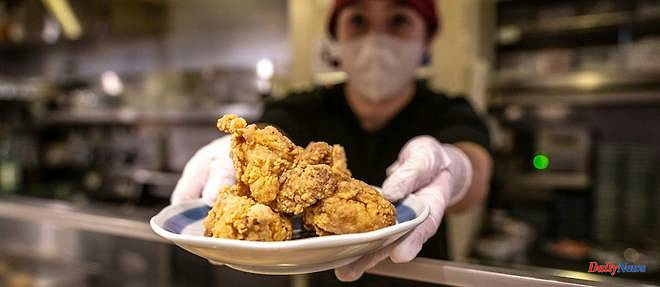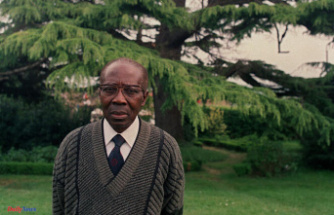Golden, crispy, juicy... The Japanese judges of the "karaage" Grand Prix recently crunched hundreds of pieces of this national specialty of fried chicken to distinguish the best bites, with enormous economic stakes for the restaurateurs in the running.
The karaage (pronounced "kala-agué") has such a status in the archipelago that the competition, which is already in its 14th edition, had to change formula this year after accusations of fraud and set up a jury of professionals at the request of participating restaurants, specialist shops and bars.
Previously, the winners were decided by the public who voted on the internet, but rumors swirled about participants creating a multitude of e-mail addresses to falsify the result.
"Before, people voted without even tasting," Kazuhiko Nakano, manager of a chain of bars who has already won several prizes in this competition, told AFP and said he saw his karaage sales increase by 80% after his first award in 2020. Some winners have seen their revenue triple.
While Korean fried chicken has been a worldwide craze for several years, karaage is king in Japan, where the word designates a technique consisting in marinating chicken (but also other meats, fish and even vegetables) and coat with flour and starch before frying.
The Grand Prix jury, which this week presented its awards in various categories (karaage flavored with soy sauce, salt, etc.) during a ceremony, was mainly made up of professionals from the food industry.
They met several times across the country, tasting about 25 kinds of karaage a day after listening to a short presentation from each cook, and chewing chunks of pineapple in between to aid digestion.
“I have eaten karaage every day for more than ten years,” said Iku Arino, a member of the jury, estimating that she had tasted the chicken from “3,300 establishments”. "I never tire of it," she says.
The president of the jury, Koichiro Yagi, however, explained to AFP that he wanted to refine the system in the future, while each judge had to swallow about a kilo of chicken at each session this year.
To increase their chances, some restaurateurs have gone so far as to tour establishments in the small town of Nakatsu, on the island of Kyushu (southwest Japan), which has a reputation for producing the best karaage in Japan, and whose several restaurants have already won prizes in the competition.
"There are a lot of chicken stalls in Nakatsu and we've tried them all," says Takehiro Matsumoto, whose karaage has won Grand Prix awards for the past three years.
Beyond Nakatsu, "if we heard that a restaurant was good, we would go there and study it to find the best," he adds.
To identify a good karaage, Chief Judge Koichiro Yagi explained that he is looking for a piece of chicken that "tells a story".
"The initial flavor attracts you with its aroma and then its taste, but the real pleasure of karaage is that it makes you travel", detailed the judge, dressed in a traditional coat stamped with the slogan "karaage changes the world".
According to him, however, there is no magic recipe for cooking a good karaage. “It changes depending on the situation in which you eat it,” he believes.
“It also depends on who you are with when you eat it, and how you taste it.” "What makes a perfect karaage? That's a tough question," he begs.
13/04/2023 18:53:19 - Tokyo (AFP) - © 2023 AFP












